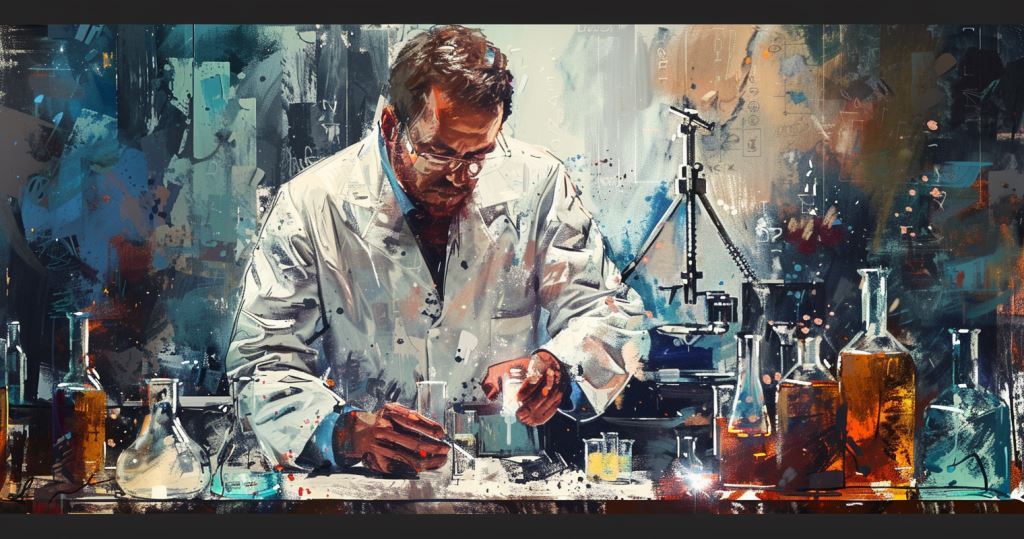The scientific method has evolved to solve problems through rigorous inquiry. Facing global issues requires clear, evidence-based approaches. Historical insights into this method can help guide our complex decision-making today.
Tracing its history gives us insight into how the scientific method has been refined over time to incorporate new technologies, methodologies, and philosophical perspectives. This understanding is essential for anyone seeking to navigate the complexities of the modern world and contribute to creating a more sustainable future.
Engaging with the history of the scientific method equips us with the tools to think critically, question assumptions, and make informed choices in the face of uncertainty.
The development of the scientific method—a systematic approach to inquiry based on empirical evidence, observation, and experimentation—has been influenced by many thinkers, cultures, and historical events over the centuries.
As it is known today, the scientific method did not develop overnight but evolved over millennia, with contributions from many different cultures and individuals. This process was marked by the gradual shift from reliance on philosophical reasoning and the authority of ancient texts to an emphasis on observation, experimentation, and the testing of hypotheses.
One of the earliest contributors to the development of the scientific method was Thales of Miletus (c.624-c.545 B.C.E.), a pre-Socratic Greek philosopher, mathematician, and astronomer. Thales sought rational explanations for natural phenomena, moving away from mythological explanations. His cosmological thesis that water is the fundamental substance from which all things originate exemplifies his attempt to find a unifying principle in nature. Thales’ method of inquiry, which involved observing the world and seeking natural causes for phenomena, laid the groundwork for the scientific method that future philosophers and scientists would refine.
The earliest forms of empirical observation and inductive reasoning can be traced back to Aristotle (384–322 BCE), whose works laid foundational concepts for systematic investigation into natural phenomena.
During the Islamic Golden Age (8th to 14th century), scholars like Ibn al-Haytham, Al-Biruni, and Ibn Sina made significant contributions to the scientific method by emphasizing experimentation, hypothesis testing, and the use of evidence to back scientific theories.
In Europe, Roger Bacon (1214–1294), an English philosopher and Franciscan friar, advocated for the use of empirical methods and experimentation and is often viewed as one of the earliest proponents of the modern scientific method.
The Renaissance and the Scientific Revolution (14th to 17th century) saw a resurgence of empirical observation and experimentation, greatly influenced by the rediscovery of classical texts and the invention of the printing press, facilitating the spread of new ideas.
During the Enlightenment (17th and 18th Centuries), philosophers like Francis Bacon (1561–1626) and René Descartes (1596–1650) laid foundational principles for the scientific method. Often called the father of empiricism, Bacon formalized the empirical method and advocated for inductive reasoning to accumulate evidence and draw conclusions. Descartes emphasized the use of deductive reasoning and a systematic doubt approach.
The period also saw the establishment of scientific societies, such as the Royal Society in London (1660) and the French Academy of Sciences in Paris (1666), which played crucial roles in promoting scientific research and the sharing of knowledge.
Galileo Galilei (1564–1642) and Isaac Newton (1642–1727) made foundational contributions to the development of the scientific method. Galileo’s work in astronomy, physics, and engineering exemplified the application of the scientific method across various disciplines. Newton’s Mathematical Principles of Natural Philosophy unified the laws of motion and universal gravitation, applying the scientific method to a broad range of physical phenomena and epitomizing the scientific revolution.
In the 19th century, the scientific method was further refined by introducing more rigorous experimental procedures and the importance of statistical analysis. Charles Darwin‘s work on evolution by natural selection exemplified the application of the scientific method in developing a comprehensive theory based on extensive observation and evidence collection.
The concept of falsifiability, articulated in the 20th century by Karl Popper, started to influence the scientific method. It holds that for a hypothesis to be scientific, it must be testable and capable of being proven false.
The 20th century saw the formalization of the scientific method as we understand it today, with the addition of the hypothesis testing process in a more structured manner. Karl Popper‘s philosophy of science, emphasizing falsifiability, gained prominence, while Thomas Kuhn‘s work on the structure of scientific revolutions introduced the idea of paradigm shifts.
In the 21st century and beyond, the advent of computational models, simulations, big data, and advanced statistical techniques has transformed how scientists analyze complex systems and test hypotheses. The reproducibility crisis has led to calls for greater transparency, open science practices, and methodological rigor in research.
Throughout its evolution, the scientific method has become more refined and rigorous, incorporating new technologies, methodologies, and philosophical insights while maintaining its core principles of observation, experimentation, and the iterative testing of hypotheses.
Studying the evolution of the scientific method gives us valuable insights into critical thinking and problem-solving. As we face new challenges, let’s apply these lessons to question assumptions, seek evidence, and find new answers. Working together, we can use the scientific method to create a better world for ourselves and future generations.
POST NAVIGATION
CHAPTER NAVIGATION
Tags: Al-Biruni (1) | Alhazen (1) | Aristotle (4) | Avicenna (2) | Charles Darwin (3) | critical thinking (49) | falsifiability (3) | Francis Bacon (2) | French Academy of Sciences (1) | Galileo Galilei (1) | history of scientific method (1) | Isaac Newton (2) | Islamic Golden Age (3) | Karl Popper (7) | paradigm shift (4) | Renaissance (6) | René Descartes (2) | Roger Bacon (2) | Royal Society (2) | scientific method (27) | scientific revolution (5) | Thales of Miletus (1) | The Enlightenment (28) | The Mathematical Principles of Natural Philosophy (1) | Thomas Kuhn (3)
SEARCH
Blook SearchGoogle Web Search
Photo Credits: MidJournrey (Public Domain)
Learn to lead by hosting the conversations that rarely happen but deeply matter. Coaching helps you turn dialogue into a daily leadership practice.


